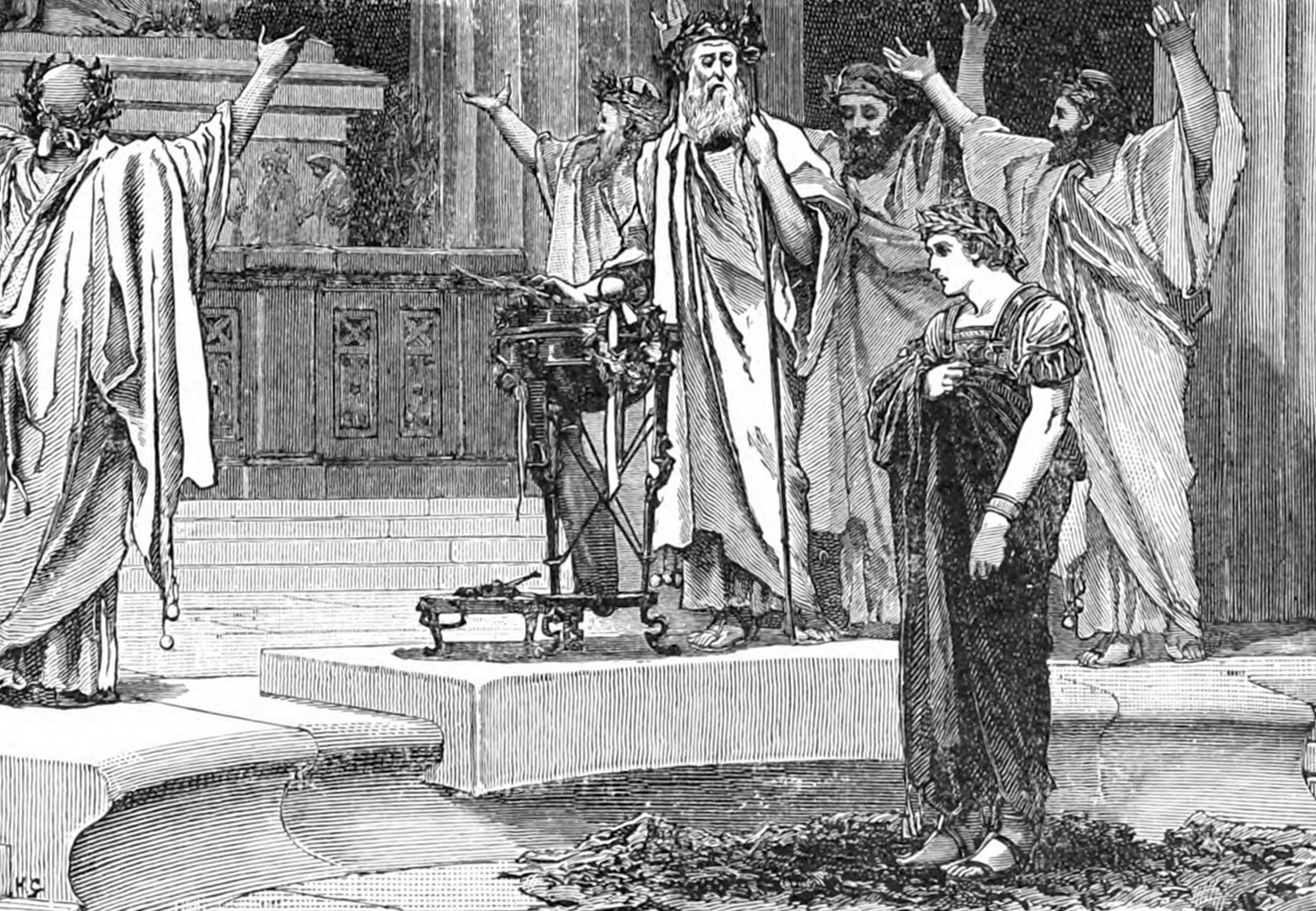
Alexander the Great
Alexander III was the son of King Philip of Macedon (382-336 B.C.). Alexander's mother was Olympias of Epirus and she was the daughter of King Neoptolemus I. King Philip faced enormous problems as he assumed the throne of Macedonia. Macedonia was a poor feudal society. Most of the people were farmers who could barely scratch out a living. At the time his army was small, and only consisted of part time soldiers. Slowly he begin unifying and expanding his kingdom over the next 23 years. King Philip developed Macedonia's mining, trade, agriculture, and military. Before long, he established a permanent professional army that was highly trained. During his reign he transformed Macedonia into a world power, and even brought Greece under his control.
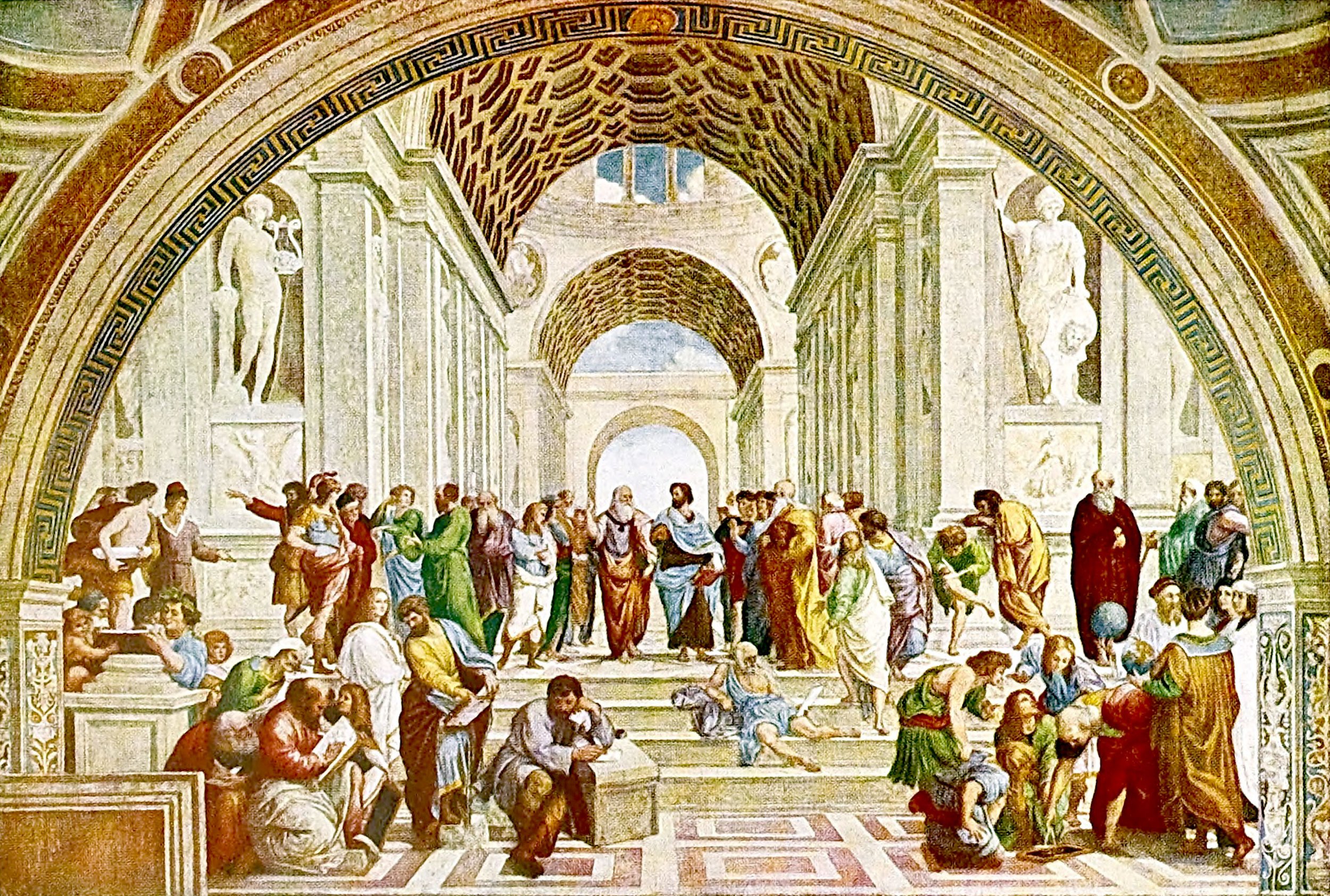
Aristotle
Aristotle was born in 384 B.C., in the town of Stagira, Chalcidice, in Greek Macedonia. His father Nicomachus was a personal physician to Amyntas II, king of Macedon. Amyntas was the grandfather of Alexander the Great. As a result of his political connections, Aristotle's father became very rich, acquiring estates all over Greece. Before long tragedy struck and his mother Phaestis died. Then shortly after his father died. At the time, Aristotle was taken to the Greek city of Atarneus where he was raised by his older sister Arimeste and her husband Poxenus. When Aristotle turned 17, they sent him to Athens to receive an education.
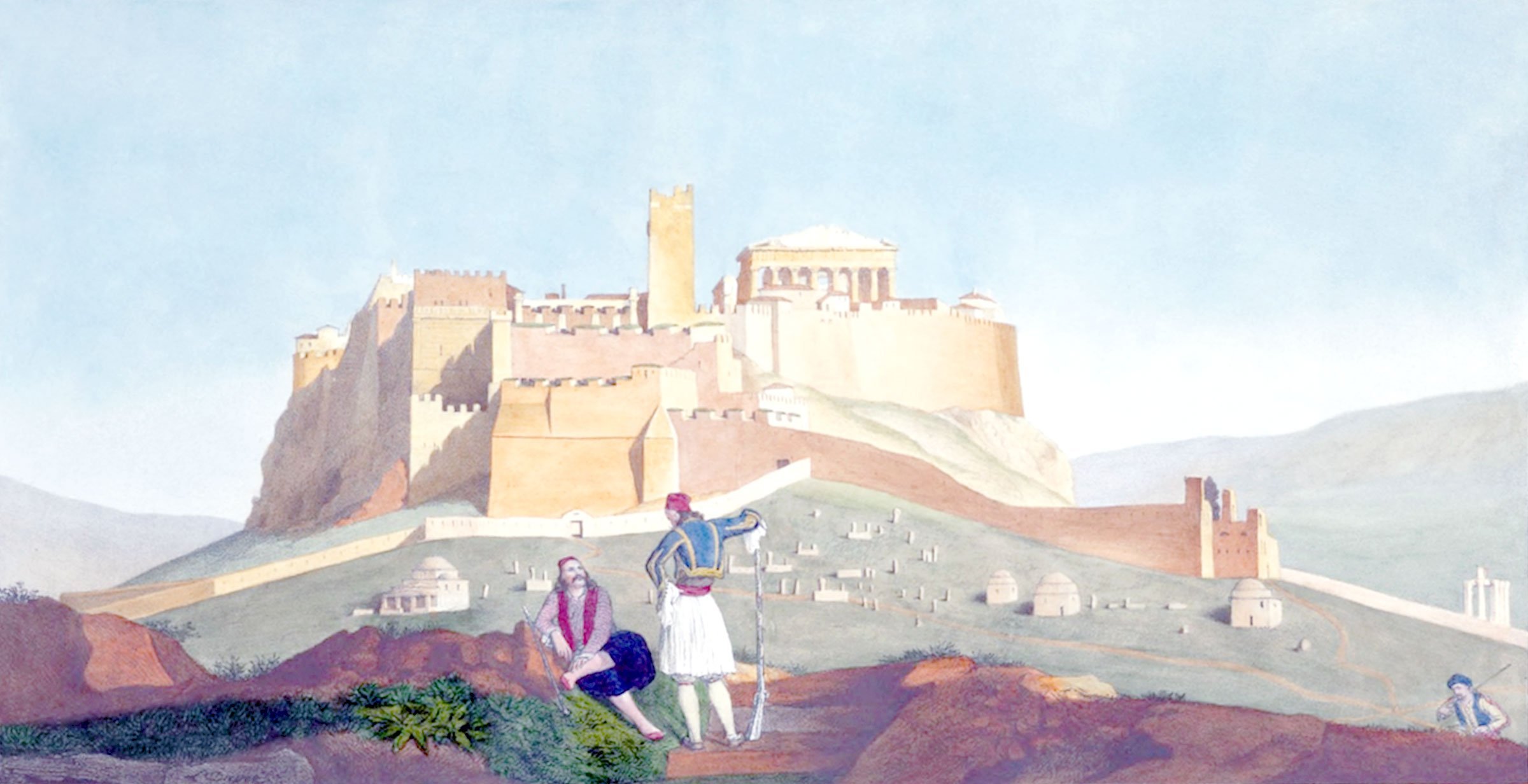
Athens Democracy
Sometime after 800 B.C., people began living in small villages. Most of the villages were separated by mountains or the sea. Gradually, several of the villages joined together to become a city-state. Each city state was almost like a separate nation. Overtime there were over 1,500 city-states in ancient Greece. They all spoke Greek, practiced the same religion, and were members of the same culture but they were not loyal to Greece as a whole, but instead they were only loyal to their city-state. The most powerful and respected of these city-states were Athens and Sparta.
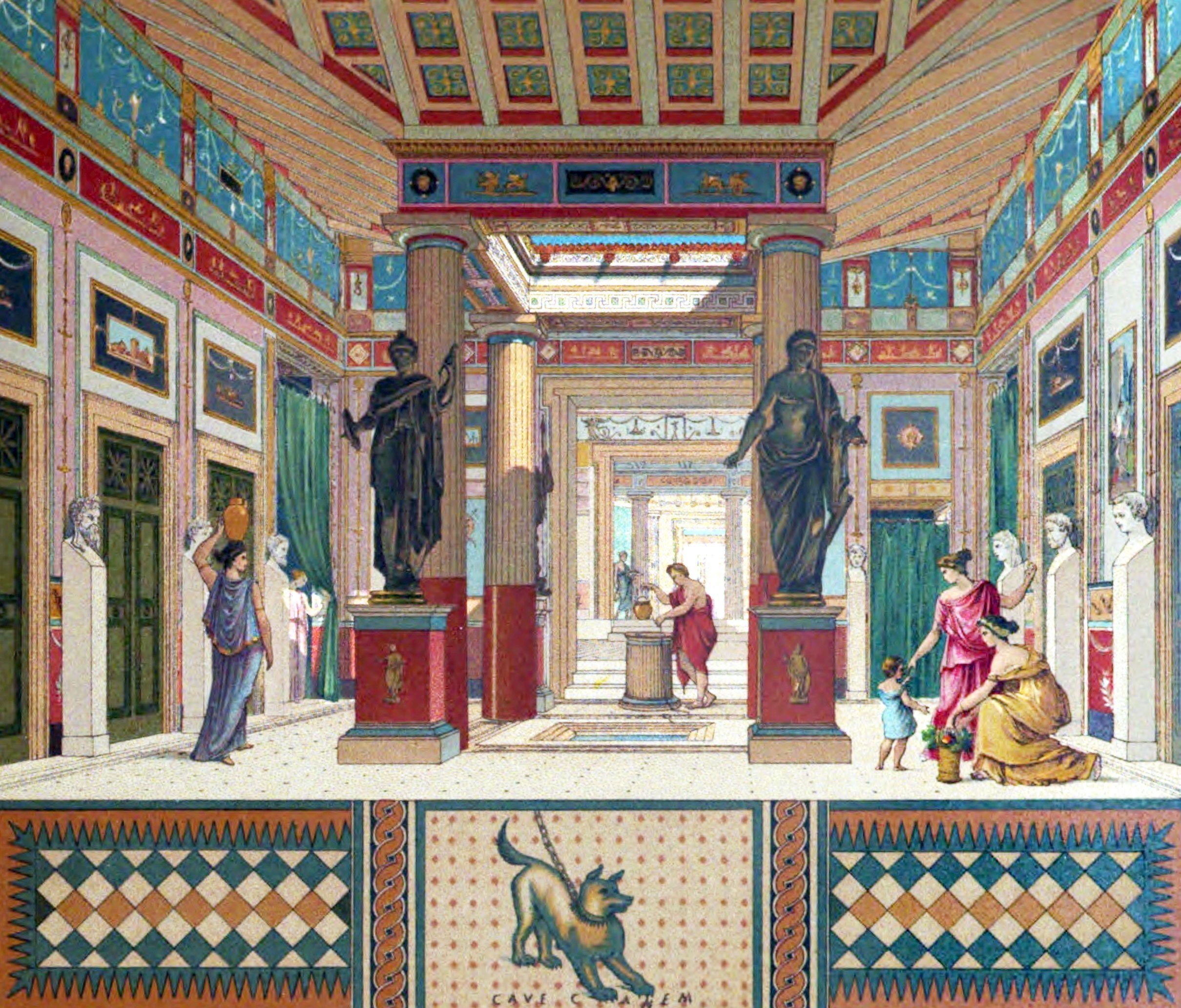
Greek Art and Architecture
The Classical Period of Greece started around 800 BC, and lasted no later than 300 BC. These were prosperous times for Greece. As a result, the Greek people dedicated large amounts of money to the arts, architecture, education, science, and philosophy. This period is sometimes referred to as the Golden Age of Greece.
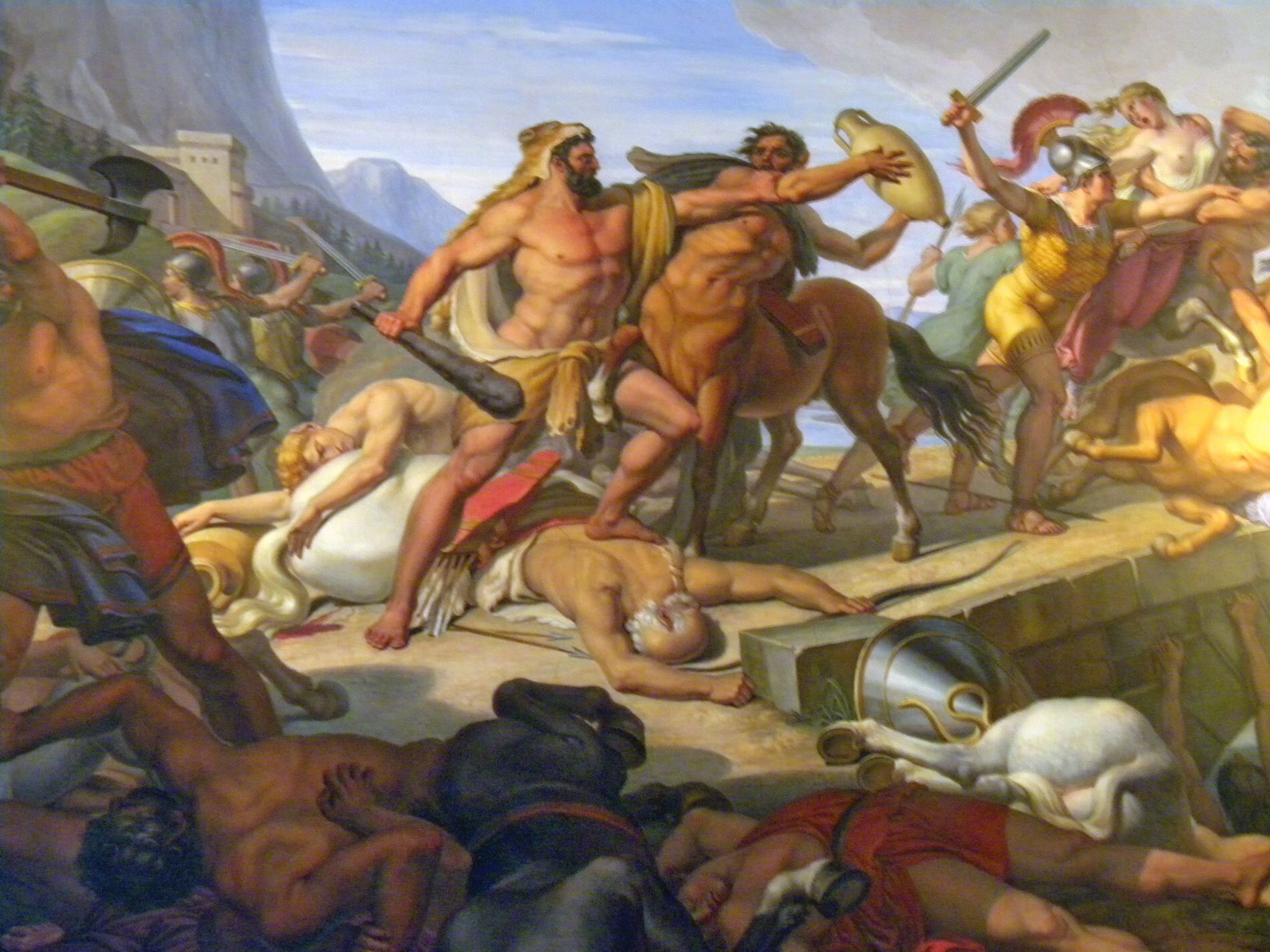
Greek Mythology
Throughout history, no group of stories has become more influential than the richly detailed stories that we call Greek mythology. When we think of myths we usually believe that what we are hearing is fiction. However, in ancient Greece a myth was not fiction. The word myth was derived from the Greek word Mythos which means word, story, or speech. It does not imply fiction. In this context, Greek mythology is defined as a socially powerful traditional story. In classical Greece, the word myth implied that you are hearing a truth about the nature of the world, the gods and their activities, heroes and heroines, ritual practices, or possibly some element of Greek society. The Greeks used myths to explain all of the events that had occurred from the creation of the universe to the Trojan War.
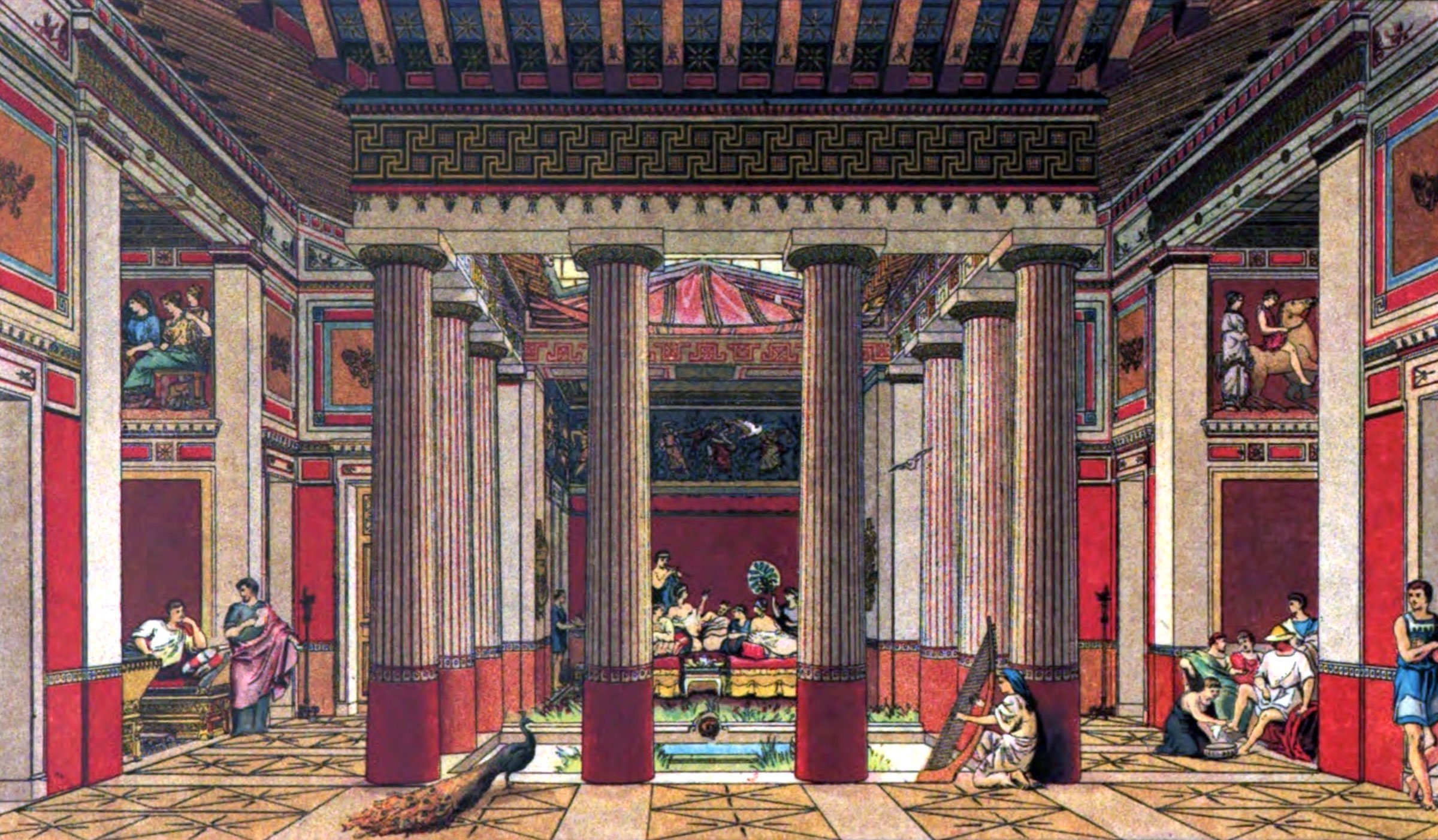
Lifestyles of Ancient Greece
The average ancient Greek family ate two meals a day. The poor and slave class ate porridge, bread, soup, eggs, fish, and some vegetables. Food famines were common. The people who were middle class or better ate chicken, pig, goat, and sheep. Cows were almost non-existent at the time. The wealthy also ate a lot of fish including, mackerel, surgeon, tuna, and sardines.
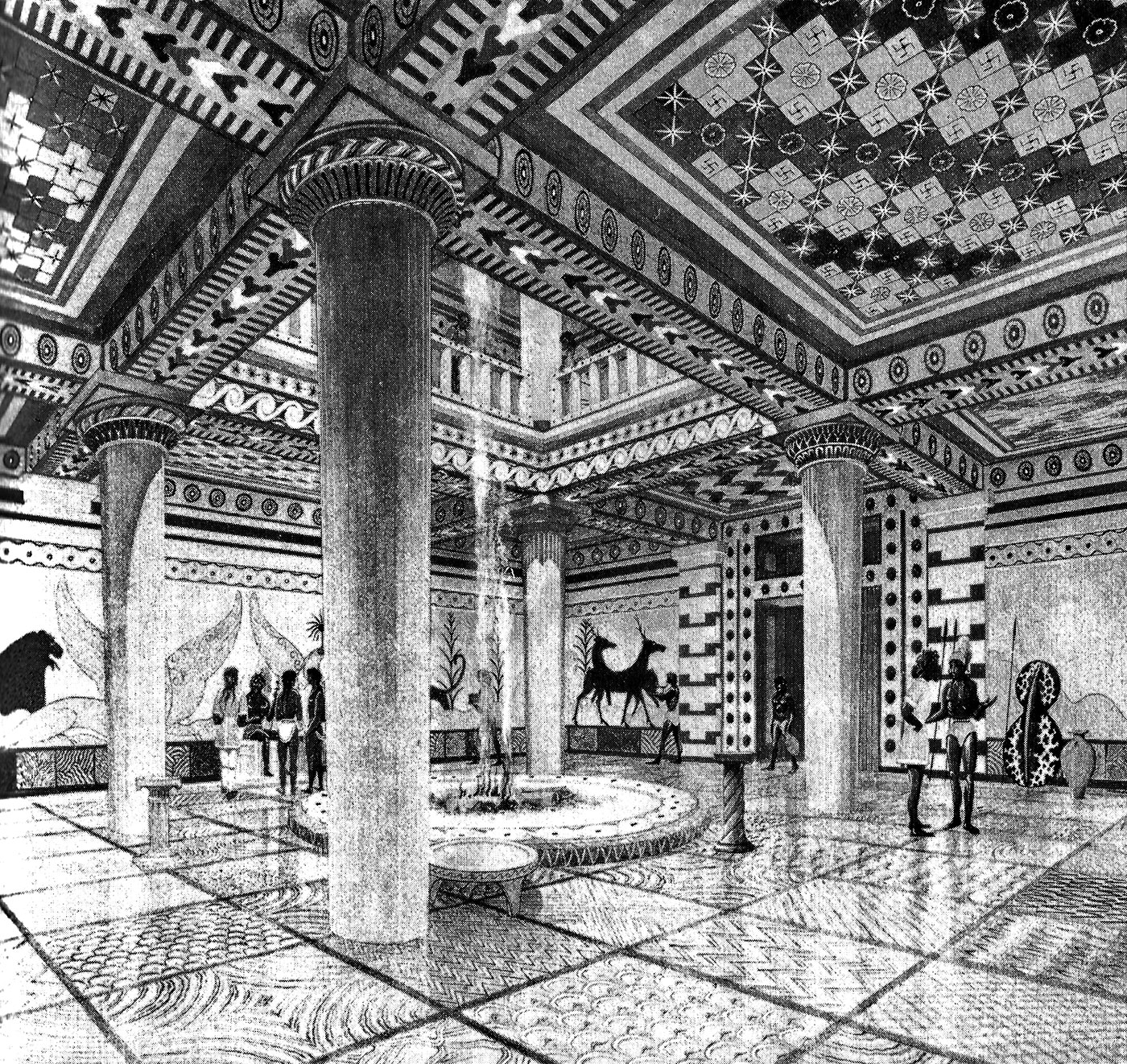
Mycenaean Civilization
The Mycenaean civilization takes its name from the Palace of Mycenae which was discovered by renown German archaeologist Heinrich Schliemann. The Mycenae people arrived in Greece around 2000 BC. They did not become a dominant culture until they conquered the Minoans sometime around 1450 BC. At this time they were an agriculture based economy that had become very prosperous from trade.
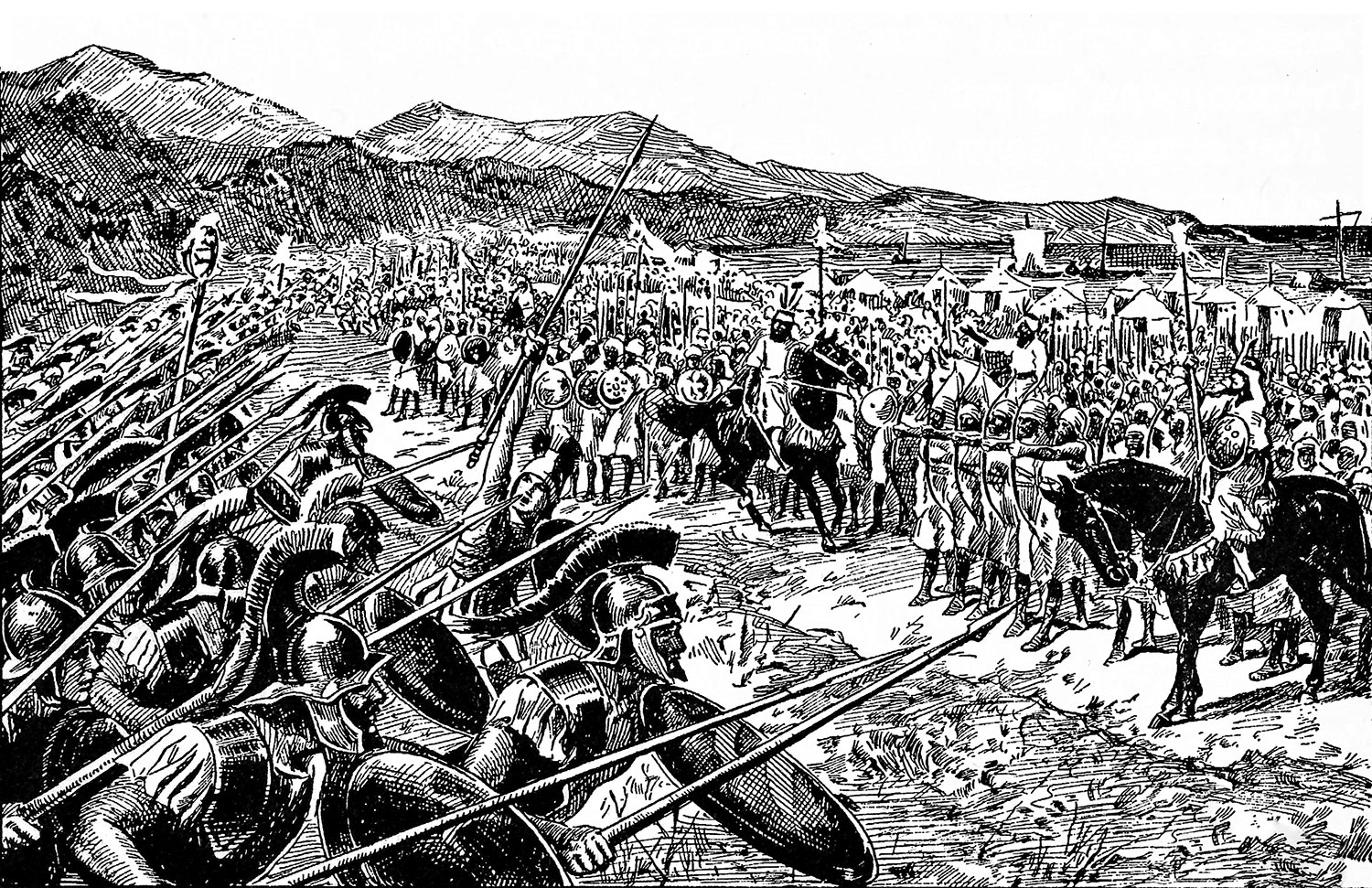
Peloponnesian War
The Peloponnesian War was fought between the two most powerful forces in Greece, the Peloponnesian League and Sparta, and the city-state of Athens and its allies. What we know about the war and the subsequent collapse of the Athenian navy is because of the research by Greek historian Thucydides. Athens was eager to prove that they were unbeatable, while the Peloponnesians wanted the total destruction of Athens. At the time. the Peloponnesians had the more powerful army, while the Athenians were the uncontested masters of the Mediterranean Sea.
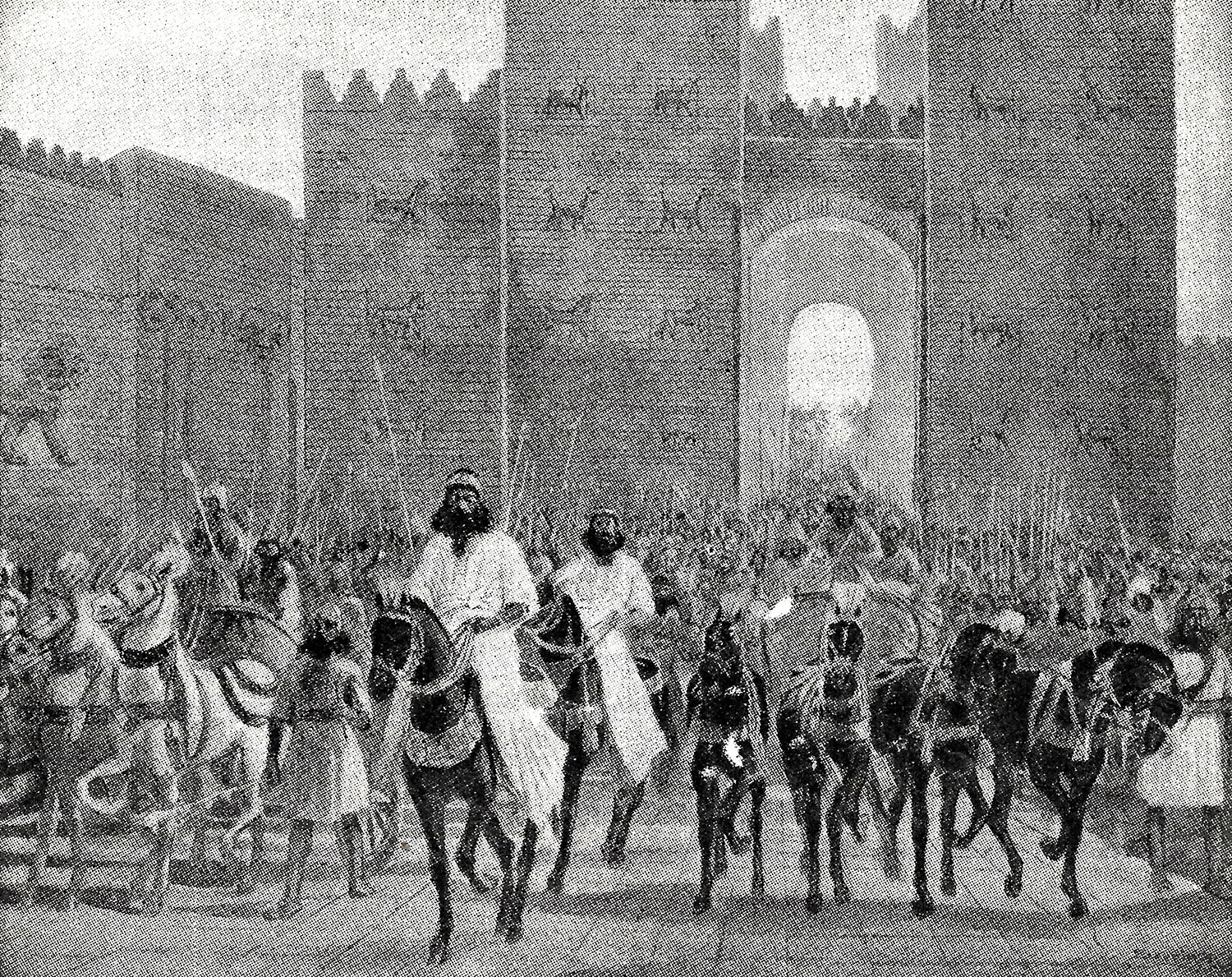
Persian War
In 1,000 B.C., a powerful civilization was emerging east of the Tigris River in western Asia. These people were called the Persians, and they would expand dramatically under the rule of King Cyrus (559-529). Under his leadership the Persian Empire borders extended all the way to the Indus River, which included most of western Asia. Before long, Cyrus would overrun the Greek cities of Asia Minor on the western coast of Turkey. Many historians consider this to be the start of the Persian Wars.
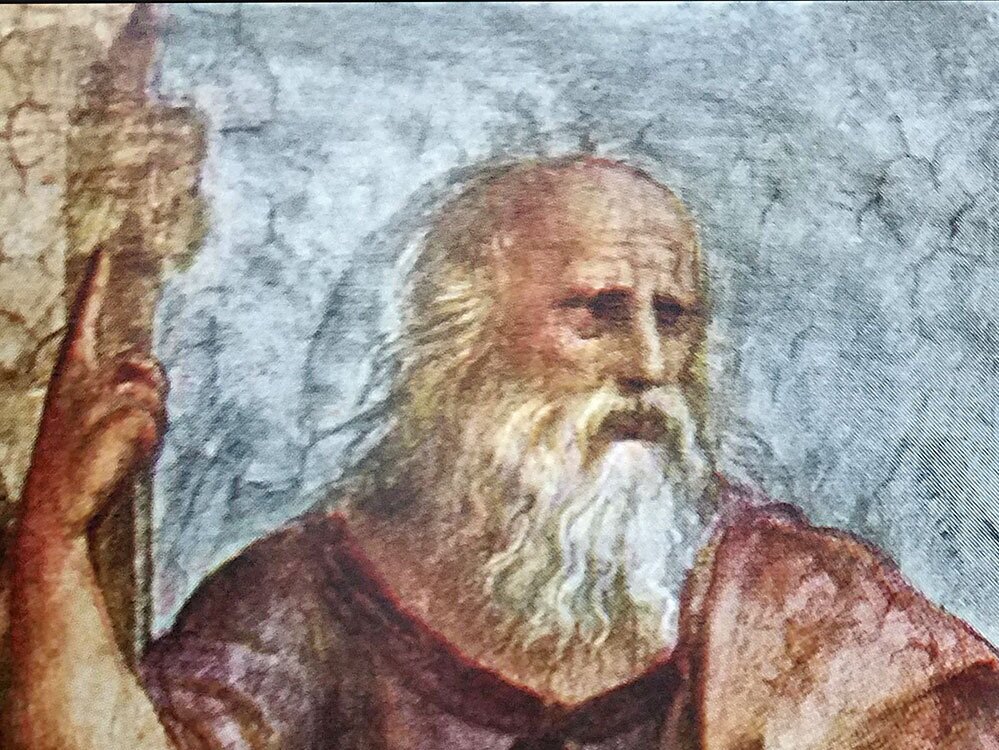
Plato
Plato was born in the year 428 B.C., in either Athens or on the island of Aegina. Plato was given the name Aristocles at birth. His father Ariston was a descendant of the last king of Athens, Codrus. His mother Perictione was a descendant of the Athenian statesman, poet, and lawmaker Solon. Perictione was also the sister of Charmides, and the niece of Critias, who were soon to become influential leaders of the Thirty Tyrants.

Slavery in Ancient Greece
Slave ownership in ancient Greece was widespread even in the poorest communities. Athens is believed to have had the largest population of slaves. It is believed that in 385 B.C., there were 100,000 people enslaved in Athens. Most slaves were obtained by kidnapping, piracy, warfare, or as a result of debt bondage. Debt bondage was considered a temporary status, but it was very difficult to buy back your freedom.
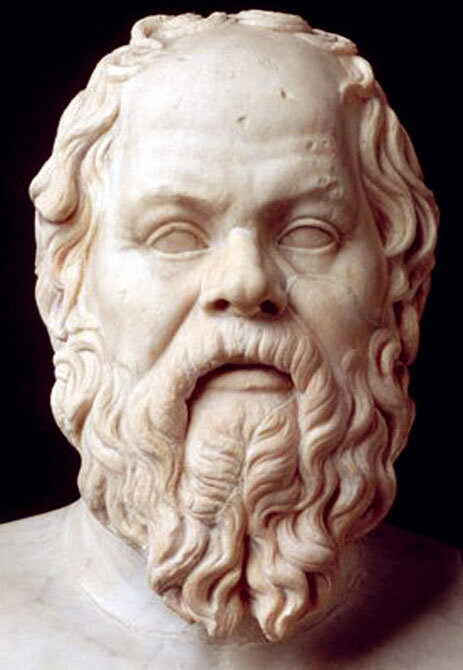
Socrates
Socrates was born in 469 B.C, in a small village on Mount Lycabettus, a short distance from Athens. His father Sophroniscus, was a stone mason and sculptor. As a child Socrates received a basic education and he was soon apprenticed to his father. Socrates worked as a stone mason for many years. While still a young man, he studied under the Greek philosopher Achealaus. Achealaus taught him mathematics, astronomy, as well as the teachings of the earlier philosophers.
